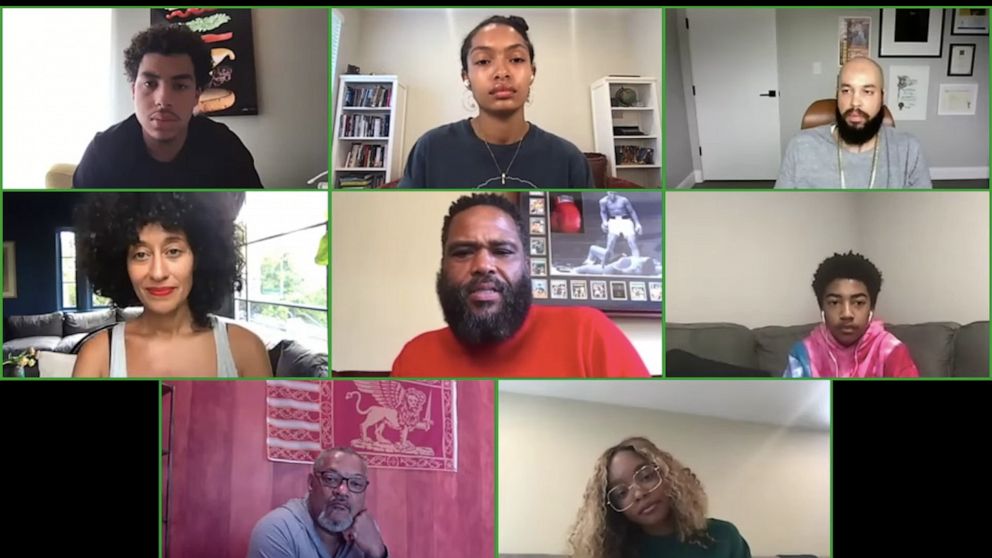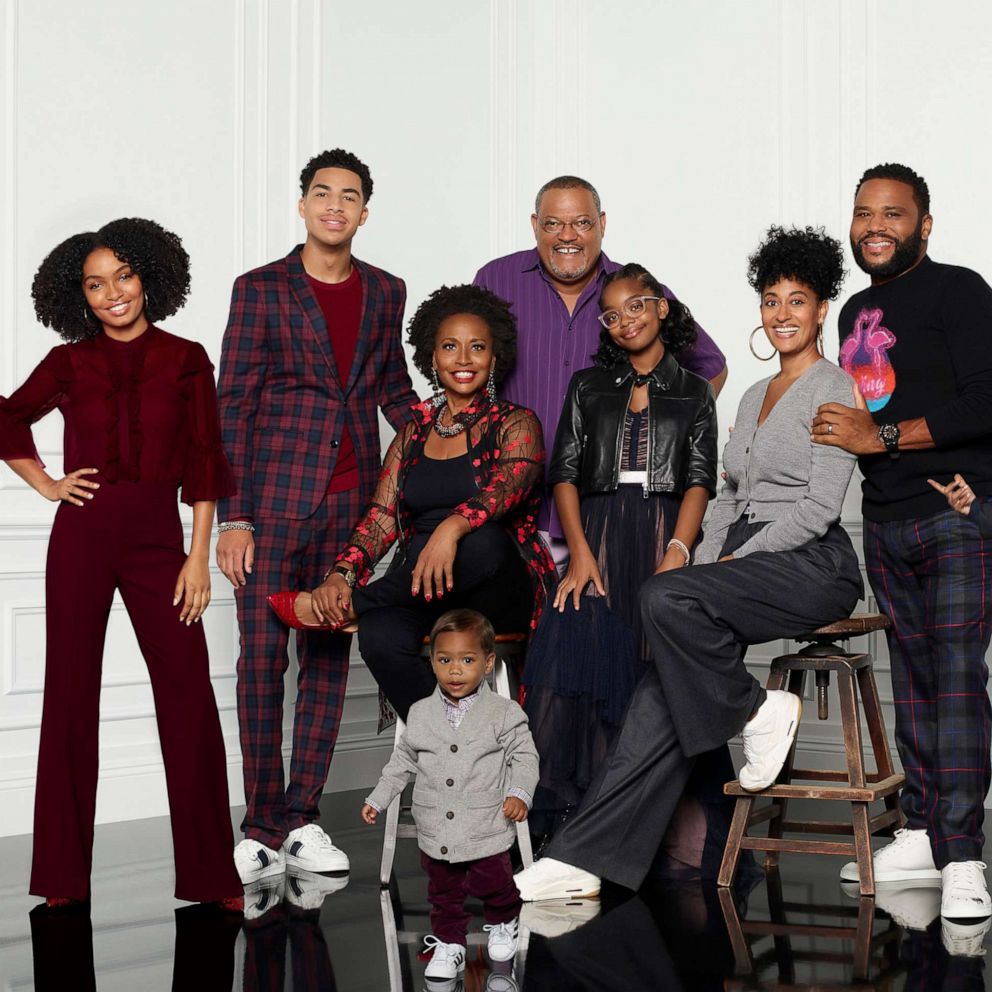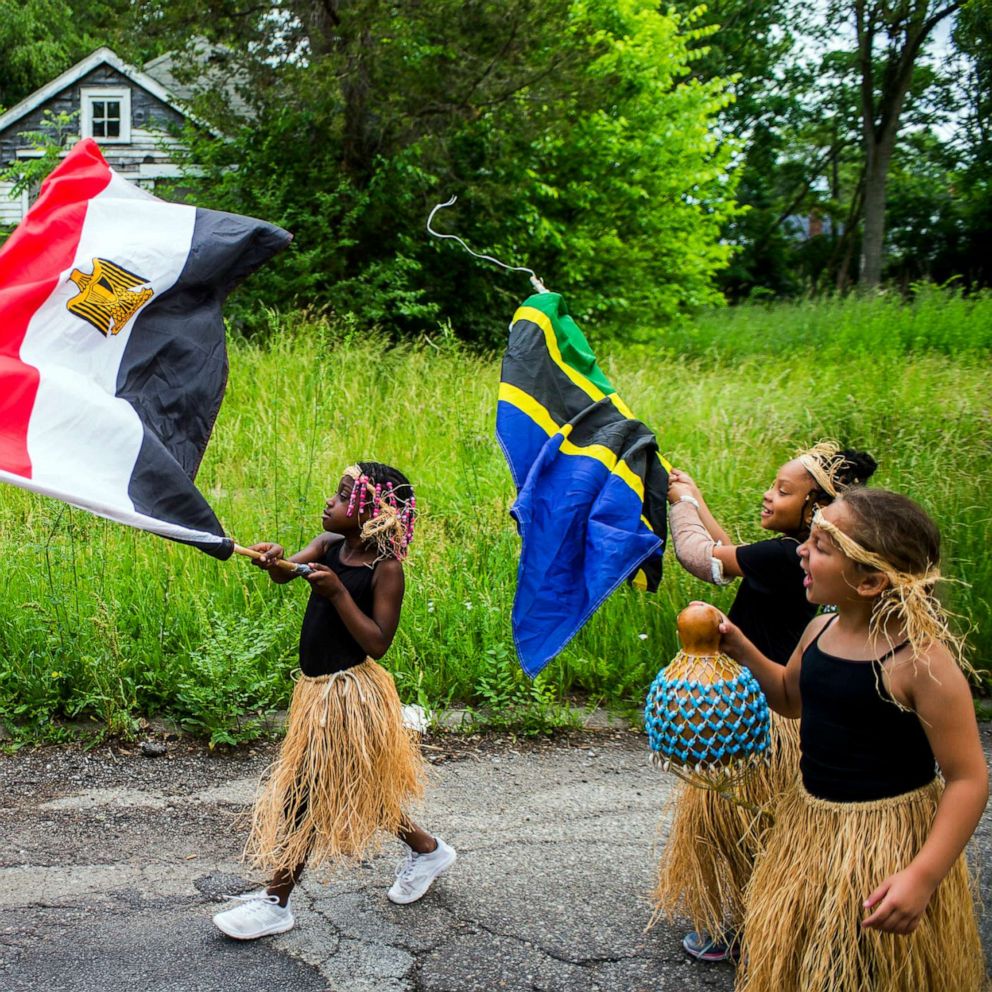'Black-ish' cast reflects on Juneteenth episode and its relevance today
Three years ago, the "Black-ish" season 4 premiere was titled "Juneteenth," a day celebrated, as Dre Johnson (played by Anthony Anderson) notes, as "the day in America where all slaves were finally free."
Members of the "Black-ish" cast, including the episode's writer, Peter Saji, gathered for a digital discussion about the monumental episode. During the conversation, they highlighted the episode's impact it made and the impact it had when it aired (Oct. 3, 2017) as well as how it's now more relevant than ever.
In a clip of the chat, Anderson said being a part of the table read with the rest of his castmates "felt like you were a part of history as you were making history."
"It was exciting, I was excited," he continued. "My adrenaline was flowing."
Other cast members to join in the Zoom call were Tracee Ellis Ross, Laurence Fishburne, Yara Shahidi, Marcus Scribner, Marsai Martin and Miles Brown.
Anderson, 49, even remembered telling himself "everything that I ever thought I wanted to be as an actor and become as an actor is going to be called upon" for the episode. And, in the end, he felt it "brought out the best in all of us."
The Emmy-nominated actor explained how the goal of everyone who has worked on "Black-ish" is to "move the culture forward with our show and to say important things and to be provocative and thought-provoking." The Juneteenth episode, in particular, he added, "embodied all of that -- and then some."
Anderson said he was in tears watching it for the first time and was even getting chills just talking about it now "because of what it means" and what he and the rest of the cast and crew had to do to ensure the final product worked.
Here's the full 'Black-ish' Zoom call about the show's Juneteenth episode:
For those who haven't seen the episode, Juneteenth gets its name from the day in 1865, June 19, when Union Gen. Gordon Granger announced in Galveston, Texas, that enslaved Black people were free and the Civil War was over.
This was about six months before Congress ratified the 13th Amendment, two months after Abraham Lincoln's death and two years after the Emancipation Proclamation.
The holiday turns 155 years old on Friday and, as of this milestone, is a ceremonial or state holiday in 47 U.S. states and the District of Columbia. The only states remaining as holdouts are Hawaii and the Dakotas.
This month, governors of Virginia and New York even proposed making Juneteenth a paid holiday for state employees while big companies, including Nike, Target and Twitter have recognized it as a paid company holiday.
Thus far, efforts to make Juneteenth a national holiday have come up short.







